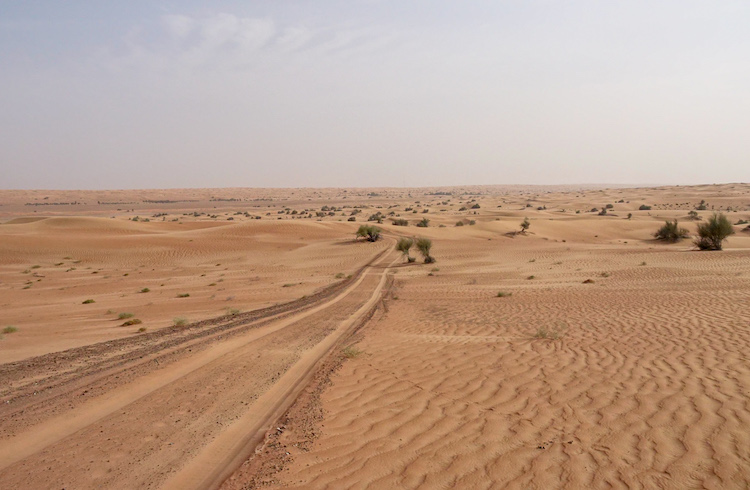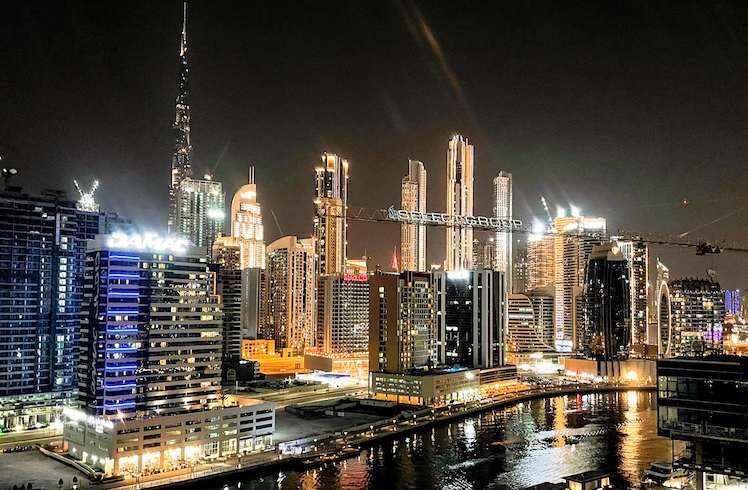The stringent restrictions of the emirate make Dubai virtually crime-free, but there are additional security issues.
- Female safety
- GLBT safety
- To prevent heat stroke
- Dubai’s safe desert
- Dubai traffic
Dubai has one of the lowest rates of crime in the world and is a very multicultural metropolis. Small-scale crimes like pickpocketing are uncommon, while violent crimes are essentially nonexistent. The tough rules and widespread compliance with the strong government are partly responsible for Dubai’s high level of personal safety.
Although Dubai is generally less rigid than the other Emirates, there are still certain delicate subjects to be aware of, such as alcohol regulations and LGBTQ+ laws.
Even though Dubai has a reputation for being a safe and crime-free destination for tourists, there are still a few things to bear in mind when travelling both the city and the emirate of Dubai, including safety measures for excursions into the desert and during periods of intense heat.
Women’s safety
In general, women traveling alone or in groups can feel very safe in Dubai. Public transit is plentiful, English is commonly spoken, and free WiFi hotspots can be found all around the city. According to the community safety poll conducted by the 2021 Women, Peace and Security Index, 98.5% of women in the UAE said they felt comfortable walking by themselves at night in their communities, ranking Dubai among the safest cities in the world.
The tight local culture is largely to blame for the protection of women.
Dubai has less of a dress code than other emirates, such as Sharjah, the third-largest emirate, which is more conservative and where it is best to dress modestly. Because there are so many Europeans in Dubai, wearing shorts or a short dress is generally appropriate in the more westernized restaurants. However, the month of Ramadan, when the Islamic festival is observed, is the time of year when you should pay more attention to what you wear. While this does not mandate that foreign women cover their heads, it is advised that they dress more modestly by donning long dresses, slacks, and modest shirts.
LGBTQ+ safety
Dubai may present a cosmopolitan front with its opulent hotels and premium dining options, but that doesn’t necessarily imply it is forward-thinking in many respects. The laws governing LGBTQ+ rights in the United Arab Emirates are among the harshest, and Dubai is no exception. Every sort of same-sex act is prohibited and subject to harsh penalties, including as fines, expulsion, and jail. Although Muslims often face the harshest penalties, it is nevertheless crucial to be aware of these rules and to use caution when participating in same-sex open displays of affection. This restriction also applies to heterosexual couples because it’s against the law to demonstrate any form of affection in public, including holding hands.
Avoiding heat stroke
When visiting Dubai, you should take the heat into account. The majority of the year, temperatures can reach over 100°F (40°C). The hottest months are June through September, with August being the hottest month. If you intend to go outside at these temps, you must be prepared. In order to escape the heat during these months, a large portion of the city’s residents spend their time in malls and restaurants with air conditioning. If you intend to spend time outside, dress comfortably and drink plenty of water. Before organizing any outdoor trips during these hot months, you should give it great thought. Fortunately, there are plenty of hotels in Dubai with swimming pools if you want to stay cool while getting some sun.
There is a misconception that Dubai is constantly hot, yet there are some cooler months in this desert city. Temperatures are milder and more pleasant from November through February. With highs in the mid-70s (low-20s C) and lows in the low-mid 60s (15-18°C), January is the coolest month. The best time to go camping, hiking, and other outdoor activities is during these months.
Desert safety in Dubai
It’s not advised for first-time visitors to enter the desert on their own unless they are seasoned outdoor adventurers. With a local guide, you can reserve a variety of four-wheel drive desert safari excursions, or you can decide to visit the Dubai Desert Conservation Reserve.
It’s crucial to pack appropriately because the desert might experience temperatures that are much more harsh than those in the city. Put on light, loose clothing that will keep you protected from the sun. Apply sunblock, and carry plenty water. If you do decide to go on a solo trip to the desert, be aware that you’ll be in large areas of sand with little to no infrastructure and patchy phone coverage. If you plan to stay overnight, always carry enough of food and water, hydration pills, a spare tire, and the necessary camping equipment. Although there are no huge predators in the Dubai desert, you should be cautious of venomous animals including vipers, scorpions, and kinds of indigenous spiders.

Driving in Dubai
The ability to freely travel through uncharted country is one of the most thrilling aspects of discovering a new location. If you are over 21 and have a valid international driver’s license, you are able to drive in Dubai.
Dubai is a hugely populated city with wide, intimidating freeways. Even while there are useful road signs in both Arabic and English, navigating the multi-lane motorways can initially be scary. Since the left lane is the fastest, you should stay out of it if you don’t feel confident navigating around aggressive drivers. To prevent traffic tickets, observe speed limits and other traffic regulations.
Off-roading on sand dunes can be exciting, but be careful if you go on an adventure with sand bashing.

